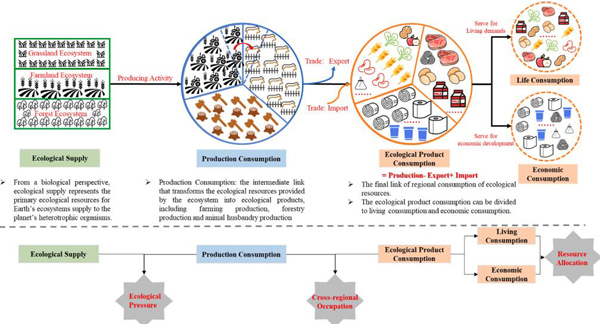Researchers Propose Adaptive Approaches for the Advance of Social-ecological Sustainability in the Belt and Road Countries
The countries along the Belt and Road (B&R) are characterized by fragile ecosystems and underdevelopment economy. How to achieve the win-win goals of economic development and eco-environmental protection is the primary concern of building the Green Silk Road.
A research led by associate Prof. YAN Huimin at Institute of Geographic Sciences and Natural Resources Research of the Chinese Academy of Sciences proposed adaptive strategies for ensuring the social-ecological sustainability in the countries along the B&R based on previous experiences by simulating the flow of ecological resources between the ecosystem and the social system. This work was published in Journal of Environmental Management.
Researchers found that countries along the B&R have shown some sustainable development experiences.
The developed countries and underdeveloped agricultural countries improved ecosystem sustainability by developing the modern animal husbandry pattern that shifts from grazing to fodder systems.
Countries with insufficient ecological resources achieved their ecological protection and countries with sufficient ecological resources transformed their resource advantages into economic advantages by playing the role of international trade in the rational flow and allocation of ecological resources.
Less developed countries sacrificed human well-being to some extent in order to balance the economic development demands for ecological resources and the restrictions for the ecological resource development posed by ecological protection.
Although different countries had different practices for enhancing social-ecological sustainability, their common feature was to promote the flow and allocation of ecological resources: the flow of agricultural systems to animal husbandry systems, the flow between regions, and the allocation within social utility.
They suggested that strengthening the international trade network would be essential for promoting social-ecological sustainability of countries along the B&R. The purpose of establishing an international trade network was not only to promote material flow, but more importantly, to facilitate technology transfer and cooperation in education and culture, which would further contribute to rebuilding the sustainable production and consumption patterns of countries along the B&R.
Reference:
Yan H, Du W, Feng Z, et al. Exploring adaptive approaches for social-ecological sustainability in the Belt and Road countries: from the perspective of ecological resource flow. Journal of Environmental Management, 2022, 311:114898. https://doi.org/10.1016/j.jenvman.2022.114898.
 |
|
Figure: The flow process of ecological resources from ecosystem to the social system (Image by YAN Huimin’s group) |
Download attachments: